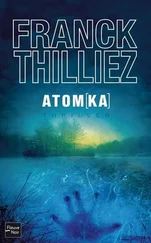Attanasio, AA - Solis
Здесь есть возможность читать онлайн «Attanasio, AA - Solis» весь текст электронной книги совершенно бесплатно (целиком полную версию без сокращений). В некоторых случаях можно слушать аудио, скачать через торрент в формате fb2 и присутствует краткое содержание. Жанр: Старинная литература, на английском языке. Описание произведения, (предисловие) а так же отзывы посетителей доступны на портале библиотеки ЛибКат.
- Название:Solis
- Автор:
- Жанр:
- Год:неизвестен
- ISBN:нет данных
- Рейтинг книги:3 / 5. Голосов: 1
-
Избранное:Добавить в избранное
- Отзывы:
-
Ваша оценка:
- 60
- 1
- 2
- 3
- 4
- 5
Solis: краткое содержание, описание и аннотация
Предлагаем к чтению аннотацию, описание, краткое содержание или предисловие (зависит от того, что написал сам автор книги «Solis»). Если вы не нашли необходимую информацию о книге — напишите в комментариях, мы постараемся отыскать её.
Solis — читать онлайн бесплатно полную книгу (весь текст) целиком
Ниже представлен текст книги, разбитый по страницам. Система сохранения места последней прочитанной страницы, позволяет с удобством читать онлайн бесплатно книгу «Solis», без необходимости каждый раз заново искать на чём Вы остановились. Поставьте закладку, и сможете в любой момент перейти на страницу, на которой закончили чтение.
Интервал:
Закладка:
One glance behind reveals the giant sprawl of Olympus Mons and the violet mass of boiling cumuli ringing the caldera. Terra Tharsis catches the morning light
in wet reflections of layered air, a mirage that amplifies the crystal depths of the city in fractured glints. The androne hears no sign of the silicon mind from there, and the diadem city wavers silently in the transparent veils of heat.
Munk ascends, soaring toward the purple heights, relishing the cooler temperature. None of the generators in Rey Raza's garage were adequate to recharge his power cells, and he is grateful for every opportunity now to conserve energy. The trek across the 4,345 kilometers to Solis will take seven
days, the tour expert has estimated, and Munk feels that with the cooler conditions and lighter gravity, his power cells will keep him active for the entire trip.
Feeling optimistic, the androne gazes down beneficently at the elemental fire reflecting from the bronze gravel flats. Among vast splash-petals and widening ripples of henna sand, he spots the drop spots where the dune climber and the sand rovers have landed. The dust plumes downwind, and Munk stares through it until he is sure all the vehicles have landed safely.
The task assigned him by Rey is to fly ahead a full day and night's journey, scouting the territory for threats. Apart from sandstorms, which are atypical this time of year and which the topo map would warn about, he is to watch out for shreeks and marauders. Munk is eager to see a shreek, for they are catalogued as the most ferocious of biots-bioforms eco-adapted to scavenge the wilds and thrive off each other and any other life-forms they can apprehend. They look fierce in the archival infoclip, whose verbal description begins,
"Imagine a three-meter-long, four-meter-tall tropical fish half a meter wide and transparent as glass. . ." Their snicking, grotesquely nimble, transparent mouth parts scissor their prey apart with slow deliberation. But they are mindless and less dangerous than the marauders.
Sweeping the rusty ridges and rocky pleats below, Munk detects no life-forms at all. In the sepia distance are the three Tharsis volcanoes, each ten kilometers high and evenly spaced seven hundred kilometers apart on the buckled horizon. Like the shawled, hunched bodies of the three fates from archaic mythology, they will watch over the caravan from portside the entire trek, and Munk finds himself pondering what judgment they will pass on the pilgrims at the limits of this world before he catches himself and turns off his imaginal subprogram.
Then, gliding down in a widening spiral, he listens deeply and hears far off the tiny noises of the caravan's silicon pilots. Among that distant chirping is the psyonic hookup that reads and translates Charles Outis's brain-waves, and the androne is calmed knowing that the archaic human is alert again and aware that he is on his way to a better life.
The wide, cratered land narrows toward a labyrinth of torture monuments: rock racks and toppled blocks, tilted stone benches, needle spires, and eerie hatchet arches, all a morbid green-black and trembling like flames in the reverberate air. Taking last advantage of his loft, the androne turns into the wind, swivels upright, and walks down the air's invisible steps toward the floor of the wasteland.
With the dune climber in the lead, the caravan churns across the desert flats at thirty-five knots, flagging streamers of dust behind it. For all the available daylight hours, they travel without stop, flares of shadow over the sands. From the lead rover, Rey Raza takes advantage of Charles Outis's curiosity and Shau Bandar's attentive recorder to flaunt his knowledge of the
wilds. He identifies the thorny silver-green beach balls clustered in the shadow gulches as zubu cactus, the first biota to thrive on Mars. He also points out
the three giant cindercones on the blighted planet rim-the Tharsis Montes. "it's no coincidence that these huge volcanoes are the same height above the
datum surface-the sea level," He nods to Charles's camera eye. "It's the maximum height a mountain on Mars can build to before the planetary crust breaks under
it and lava spills over the land. We're on the smooth ride of one of those spills now."
Charles stares disconsolately at the melted hills. Since his salvation on Phoboi Twelve, wonder persists in a hushed, distant corner of his soul. But nearer, dread mounts. He is afraid, though at first he is not sure of what. Mars is eerily beautiful, and he is inclined to think that the calamitous landscape with its pocked craters among strange liquid-looking bluffs disturbs his earthly expectations, especially with the console's computer noise clicking and
whistling around him like whale music.
But that's not it. After a few moments' reflection, as Rey natters on about types of lava, Charles narrows the source of his nebulous dread down to one
face-Sitor Ananta's. Munk's news that he has recently seen that cruel visage in
the facepan of a sentinel androne has been working on Charles. Evil pursues them. The bitter memory of the pain-raked eternity that Sitor Ananta inflicted hardens Charles's fear to a brittle panic.
Dwelling on that, he feels that his mind could snap. it is difficult enough to be bodiless and at the mercy of this unguessable future without a terror of helplessness and torture to overcome. He reaches for a deep breath to calm his fright and teeters at the brink of his disembodied emptiness, lungless,
limbless, boneless, virtually nonexistent.
An immeasurable longing displaces his fear. He wants to be whole again. Passionate courage rises from this longing, and he determines that he will not be afraid anymore.
Outside, through the rover's cameras, he sees welded boulders the color of whisky glide past. And the blighted landscape shimmers with untouchable veils.
At sunset the craterland blazes bloodred, and the rovers shift to infraview, their cooler engines running faster through the spectral landscape. The desert's vaporous plant life is easier to see in the long light. Ghostly blooms of
thermal shadows billow from the nooks and crevices of the crater outcrops, each species a different shade of fire.
"At night it becomes obvious why this track is called the Nebraska Trace," Rey announces. "Mr. Charlie, later you can tell us about Nebraska, the archaic land where the flora here originated. All these scrawny plants you're seeing shining in the dark are biots of terrene species and carry their names with their redesigned genes. That pink smoke in the graben to our left is prairie
cordgrass, and that skeletal shrub among the boulders is yarrow. Tansy and purple clover grow in abundance on the lee of dunes. And if you stare off there to the far right ahead of us where the tableland begins, you can see a whole mosaic of foxtail, gayfeather, and prairie sage."
In the sudden darkness the sky crackles with stars. Bioluminescent insects zag in the darkness. Rey, who sleeps less than twenty minutes a day, continues his colloquy with Charles Outis on the features of the two moons. He explains how
the smaller moon, Deimos, rising full in the east at dusk will still be a brilliant silver tuft in the eastern sky when the sun rises, because like someone walking down an up escalator, it travels against the planet's rotation.
The oblate moon, Phobos, on the other hand, ascends in the west on its eight-hour sprint across the sky, displaying all its waxing phases but never reaching fullness before it plunges into the planet's shadow. Rey begins relating a folktale about the frustrations of Phobos, until Grielle, who shares the front rover with him, feels compelled to tell him to shut up. Buddy and Mei Nili have already fallen asleep in their flexform recliners, wearied from a day spent getting acquainted with one-third gravity and talking about archaic times with Charles Outis.
Читать дальшеИнтервал:
Закладка:
Похожие книги на «Solis»
Представляем Вашему вниманию похожие книги на «Solis» списком для выбора. Мы отобрали схожую по названию и смыслу литературу в надежде предоставить читателям больше вариантов отыскать новые, интересные, ещё непрочитанные произведения.
Обсуждение, отзывы о книге «Solis» и просто собственные мнения читателей. Оставьте ваши комментарии, напишите, что Вы думаете о произведении, его смысле или главных героях. Укажите что конкретно понравилось, а что нет, и почему Вы так считаете.








